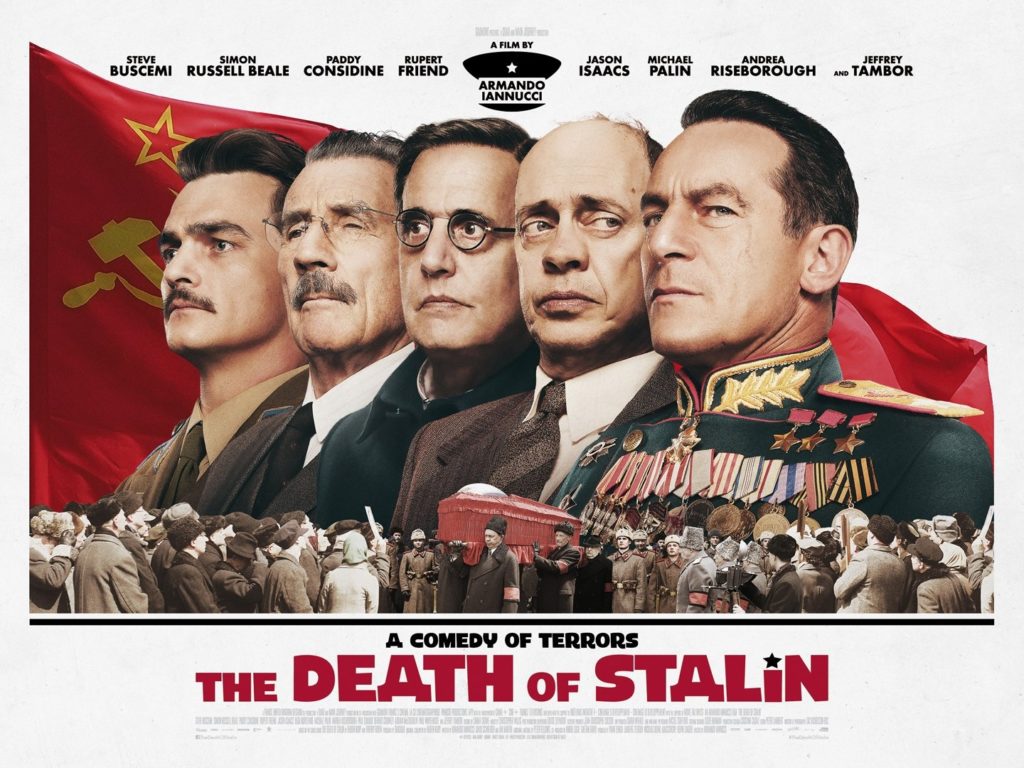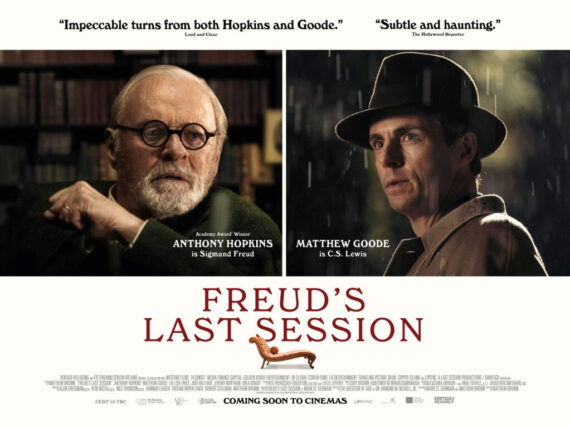Known for his scabrous lampooning of grasping policitos and laying bare the absurdity of power in shows such as The Thick of It and its US spin off Veep, in The Death of Stalin writer-director Armando Ianucci turns his attention to one of the twentieth century’s darkest periods, Stalinist USSR.
The Death of Stalin is showing in the cinema from 24 – 30 November. Monika Maurer reviews it:
Almost without pausing for breath, the film launches headlong into farce. During a Radio Moscow live performance of a Mozart piano concerto the radio producer (Paddy Considine) receives a call from Stalin (Adrian Mcloughlin) asking that a recording of it is sent to him immediately. As the performance has not been taped, the request induces a state of panic. Stalin, a dictator responsible for the deaths of millions and now in his 70s, still holds the entire country in the grip of fear. “Nobody’s going to be killed!” cries the producer, clearly convinced that he might be if he doesn’t sort out this recording issue.
So the remaining audience that hasn’t already left is locked in the studio and bewildered peasants are brought in off the streets to replace those already gone and replicate the acoustics. The pianist has to be bribed to perform again and, after the original conductor faints and knocks himself unconscious on a fire bucket, the militia is sent out to drag in a replacement who oversees the second performance in his dressing gown.
It’s an amusing introduction to the everyday absurdities in a country subject to a totalitarian regime, but nothing compared to the terrors that follow.
What really interests Ianucci is the power dynamics between those at the top of the pile and we are soon introduced to Stalin’s team of deputies. The ensemble cast includes Simon Russell Beale (a brilliantly sinister security chief Lavrentiy Beria), Steve Buscemi (Nikita Krushchev cast as a New York hood) and Geoffrey Tambor (Stalin’s nominal deputy, a malleable buffoon) – their smorgasbord of (non-Russian) accents either adding to the fun or hitting a wrong note, depending on your point of view. Either sentiment is highlighted when Jason Isaacs appears half-way through as a deranged Red Army chief with a broad Yorkshire accent.
Initially the gonzos chest bump and fist pump their way through meetings, but soon a casual cruelty creeps in. “Shoot him before her, but make sure he sees it,” orders Beria, pointing out names on a list to one of his subordinates. Before long the deputies are thrown into disarray by the death of their leader, felled by a massive stroke and found in a pool of his own urine. The remaining comrades descend further into a farce of funeral arrangements and a subsequent power battle of succession.
The problem with The Death of Stalin isn’t that it’s not funny; Ianucci’s writing is as razor sharp as ever and the juicy and visceral invectives come thick and fast. The situations are absurd and historically accurate. But the film veers an uneasy path between hilarity and threat and when the denouement finally comes it is abrupt, horrific and truly shocking. These characters are more than bumbling policitians, they are serial murderers and rapists. The jarring tonal shift suggests that perhaps the Stalinist terrors were not the best choice of subject for a comedy after all.









Comments
Comments are closed.